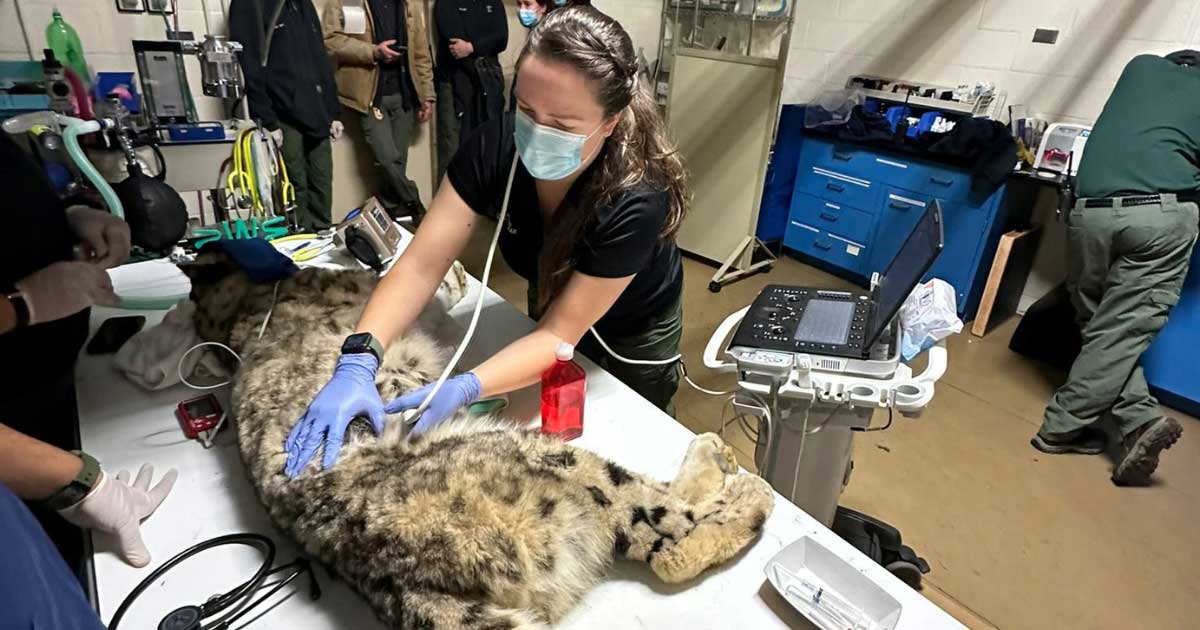
Expanding Access to High-Quality Veterinary Education and Mentorship: A Week in the Life of a Veterinarian
October 20, 2025
Zoo and wildlife veterinarians play a vital role in caring for an incredible diversity of species including many that are threatened and endangered. Expanding access to strong education and training is essential to prepare the next generation of specialists. Residency programs provide high-quality, hands-on learning opportunities — from clinical care and preventative medicine to surgery and research — guided by experienced mentors. These opportunities not only strengthen veterinarian expertise but also help ensure the well-being of diverse species, supporting broader efforts to sustain healthy ecosystems.
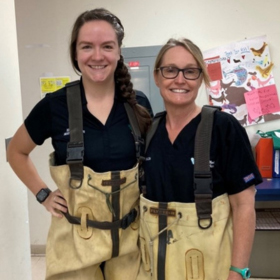
Since 2022, the Zoetis Foundation has provided grant funding to the Wildlife Conservation Society (WCS) to support a full-time WCS veterinary resident, who works to ensure the health and welfare of animals in the five WCS wildlife parks in New York City: Bronx Zoo, New York Aquarium, Central Park Zoo, Prospect Park Zoo, and Queens Zoo. Through grant support to the WCS residency program, the Zoetis Foundation is equipping veterinarians to care for wildlife in zoos, aquariums, and in the field. To learn more about what a week in the life of a wildlife veterinarian looks like, we sat down with Catherine M. Bartholf, DVM, the inaugural graduate of the Zoetis Foundation Veterinary Residency in Zoological Medicine and Surgery, at WCS’s Wildlife Health Center.
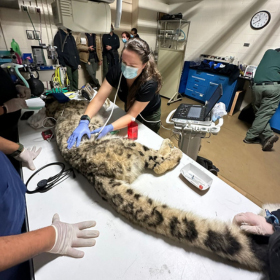
For WCS residents, a week in the clinic is anything but ordinary. “The zoo is your oyster!” said Dr. Bartholf. “Across WCS zoos, any case that pops up day to day provides an illustrious opportunity to treat that animal.” Dr. Bartholf is passionate about science and making a difference. She greatly enjoys utilizing her medical expertise to better the lives of all of her patients, ensuring they live the happiest, healthiest lives possible. In turn, she has also helped the lives of the people that visit the zoo, spreading knowledge about the importance of veterinary medicine through public programs, youth education, and broad communications initiatives.
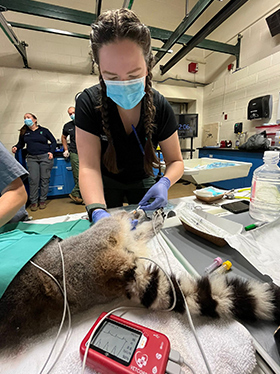
Mentorship and collaboration were a highlight for Dr. Bartholf. “Working with curators, keepers and supervisors who have spent decades in the field was invaluable,” said Dr. Bartholf. “They had so much to offer as mentors and were happy to share the mountains of knowledge they obtained in their careers.” During her time, she collaborated with WCS veterinary professionals on a challenging and rare exploratory shark surgery. While the surgery was initially intimidating, she learned a lot from the experience, trying out new techniques to make the surgery more straightforward. Following the surgery’s completion, Dr. Bartholf presented it at the International Association of Aquatic Animal Medicine conference in hopes to encourage early surgical intervention in similar future cases.
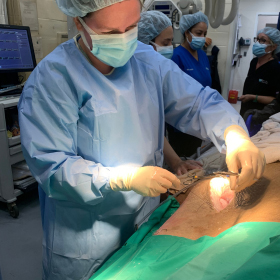
Throughout her professional and academic veterinary career, Dr. Bartholf has long been committed to conservation and appreciated the opportunity to see a new perspective on this work through her residency. For example, she saw firsthand how the Bronx Zoo’s reptile department helps turtle species thrive by protecting their genetic diversity and returning them to their natural habitats to strengthen wildlife populations.
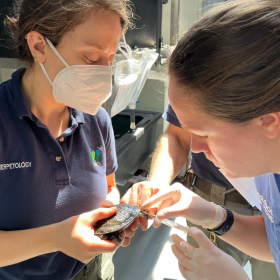
Since graduating, Dr. Bartholf has become a clinical veterinarian at Lincoln Park Zoo, where she looks forward to working with a former WCS resident and continuing to make a difference in the lives of animals and humans alike. “The program has helped my career in more ways than I could have imagined,” Dr. Bartholf reflected on her participation in the residency program. Dr. Bartholf’s experience illustrates how opportunities for mentorship, diverse clinical training and conservation-focused work can shape the next generation of veterinarians. The Zoetis Foundation is pleased to help expand access to education so future veterinarians are equipped with the skills and knowledge necessary to advance animal health.